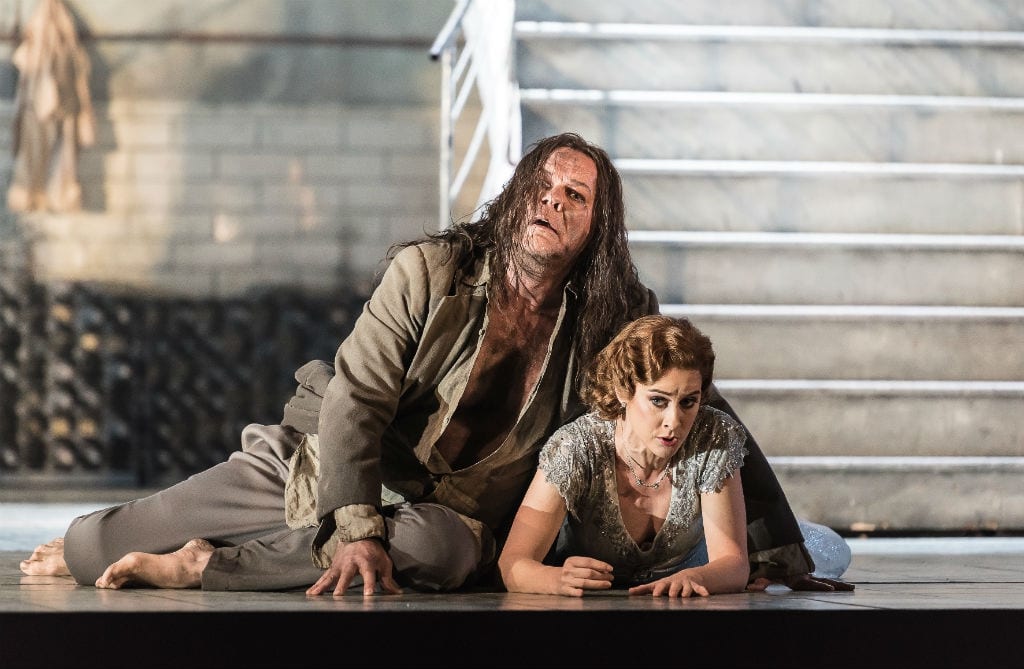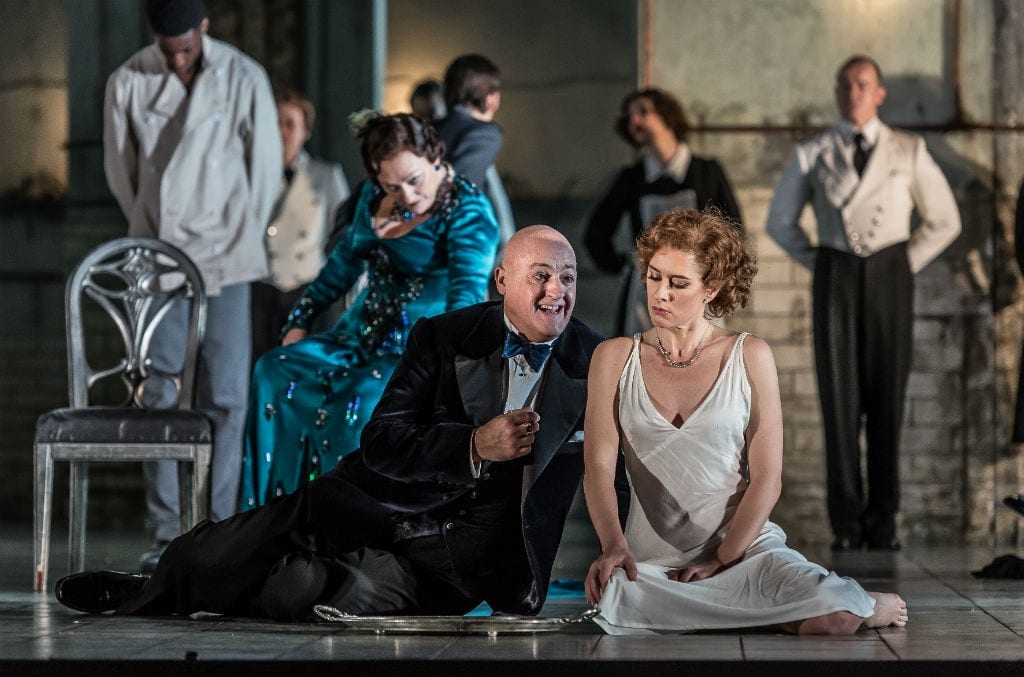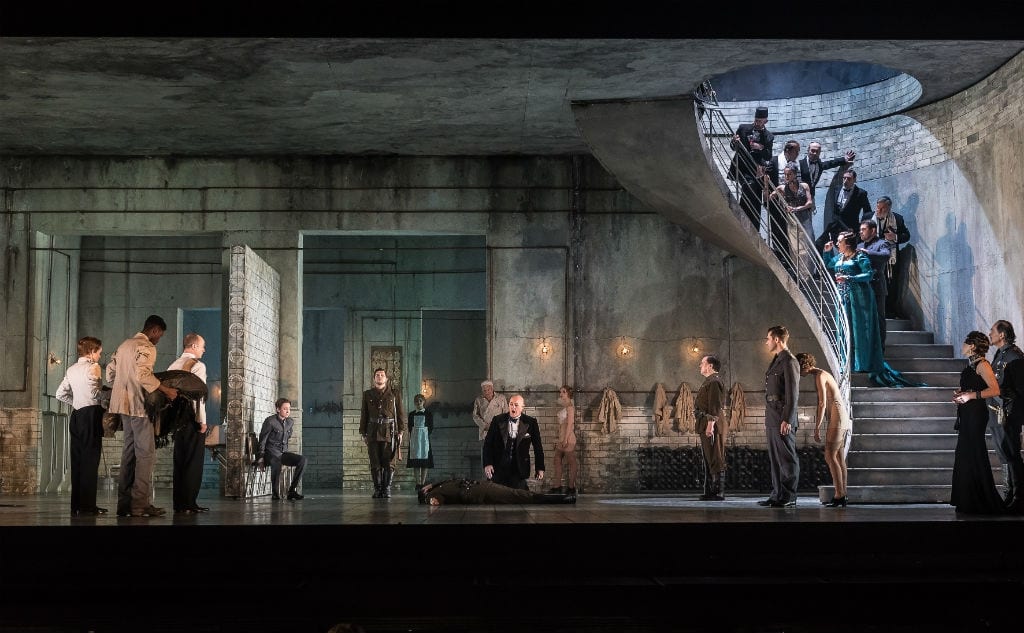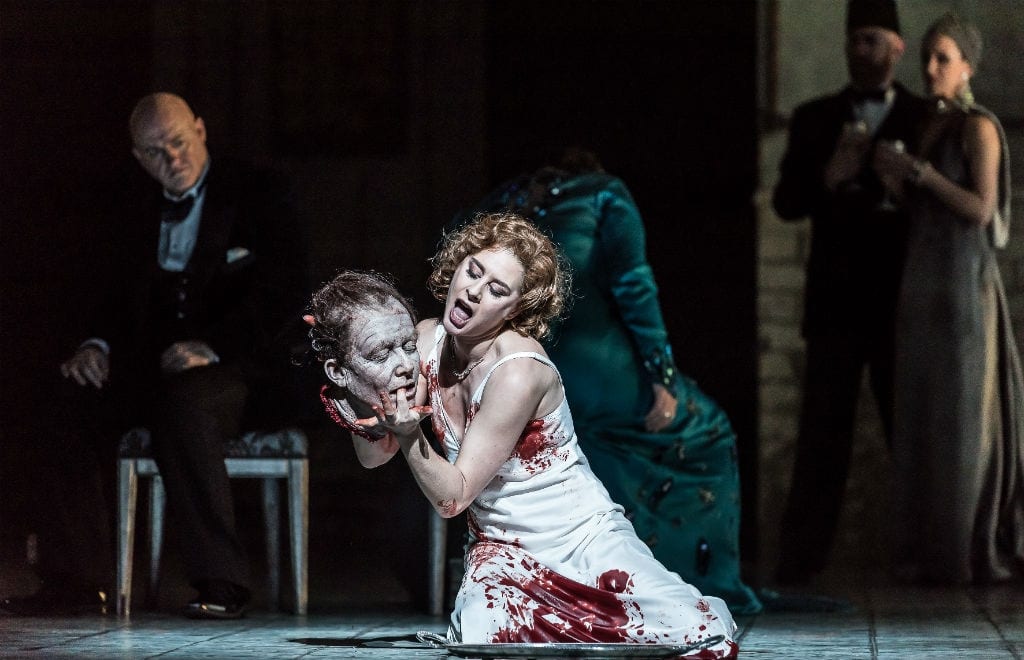Salome was Strauss’ breakthrough opera and it has all the hallmarks of his early style – lush voluptuous writing for orchestra and the soprano voice above all and an adventurous chromatic harmonic palette pushing beyond Wagner, but not quite toppling over into outright atonality. With compressed scenes, no interval, a self-consciously overripe libretto, and a deliberately provocative, risky subject it is still an awkward piece to bring off. It requires both truly heroic singing and virtuosic playing, and incisive stage direction: this it receives here in greater part.
David McVicar’s 2008 production returns now for the third time, retaining its sterling virtues, and also two of the original cast members. It largely delivers on the main requirements for a memorable production, and fully merits this revival. The stage set by Es Devlin is split between a glimpse of the banqueting room above, and the insalubrious servants’ quarters and cistern below, where the main action takes place, with the two connected by a sweeping spiral staircase that forms the focus of several key points in the action. The scenery both recedes and shifts for the fantasy dance sequence that is one of the two dramatic peaks of the work. We are in an inter-war Art Deco setting with opulent costumes but also accompanied by a strong whiff of decadence and courtly corruption, as semi-naked prostitutes drift in and out of the entertainment.

The action is continuous and explores what little we know of the death of Jesus Christ’s forerunner, John the Baptist. Spoilt and wilful, Salome demands his head on a silver platter for disdaining her intrigued advances. Herod, her step-father, foolishly promises to give her whatever she wants in return for her dancing in front of him. She is not to be denied, despite his and general revulsion among the dinner guests, for her request. A long final sequence sees her embrace the head in music of ever-more crazed rapture.
By historical accident this provocative subject has now become more topical than ever. Herod’s lubricious designs on his step-daughter were always meant to be an uncomfortable aspect of the opera. By choosing to interpret the ‘Dance of the Seven Veils’ as a trip for the heroine down a troubled and most likely abusive memory lane, this unsettling aspect is only accentuated. With the unending revelations initiated by the Harvey Weinstein scandal this reading is only given extra edge and bite as a plausible account of Salome’s bizarre and wilful motivations.
Malin Byström was in fine form in the title role, fulfilling the composer’s seemingly impossible requirement that Salome should have both teenage innocence and the voice of an Isolde. She has the vocal heft and plausible, intense acting skills this huge role demands, and – crucially – she also danced most convincingly, as aspect that is often omitted or modified in deference to less mobile singers.

It is good to hear the role of Herod actually sung as opposed to barked, as it so often is. John Daszak’s performance had the right blend of brusque authority and inner weakness that the role demands. Michaela Schuster is a warmer Herodias than usual, offering not just vocal clarity but highly effective acting off the speech. As Jokanaan (John the Baptist) Michael Volle shaped his single, but powerful, scene with Salome with both vocal command and grace, expressing the prophet’s disdain for sensuality as a whole as much as this particular princess.
The house orchestra led by Henrik Nánási explored the full dynamic range of this highly pictorial score, with moments of great delicacy and abandonment in equal measure. The self-conscious orientalising was emphasised together with the dance pulse that is hardly ever absent. There was a wonderful still suspense ahead of the moment of execution and full-tilt well-paced climaxes in the crucial orchestral interludes and the final minutes.
Supporting roles were well taken and other production aspects contributed to render the right combination of glittering surfaces and expressionist horror that this still disturbing work demands.


